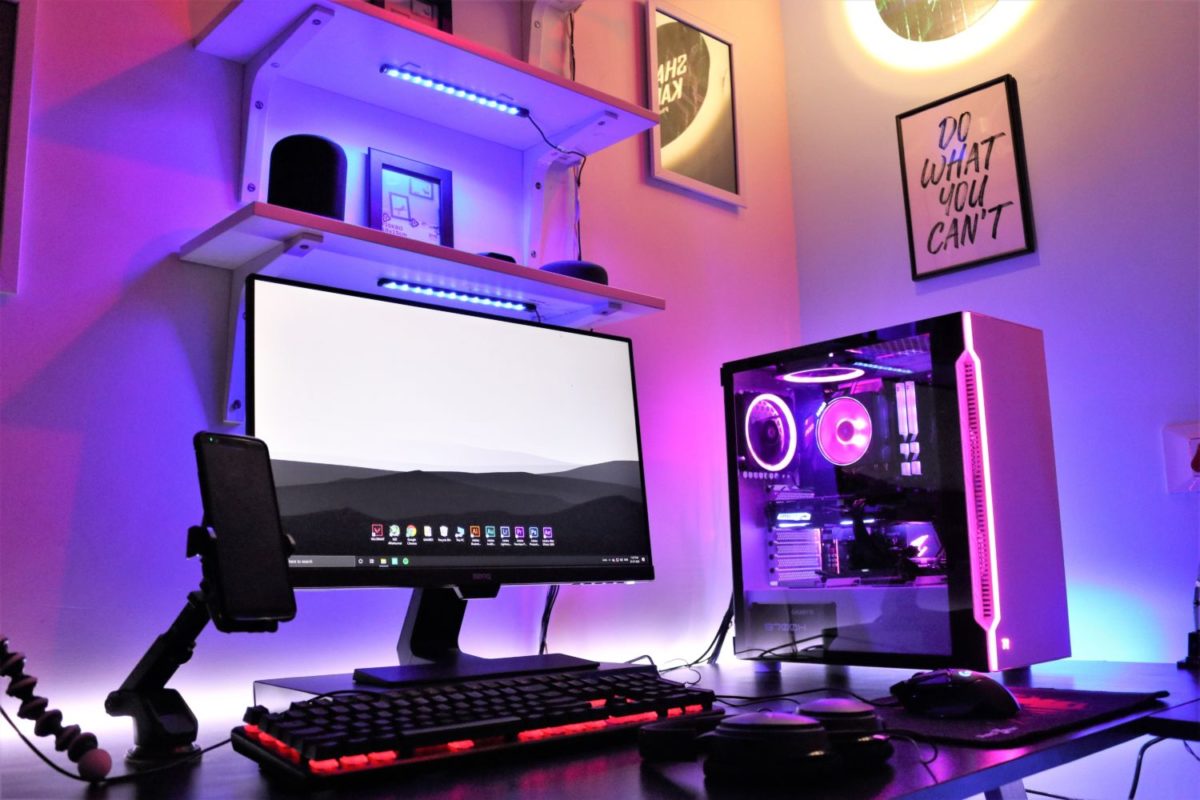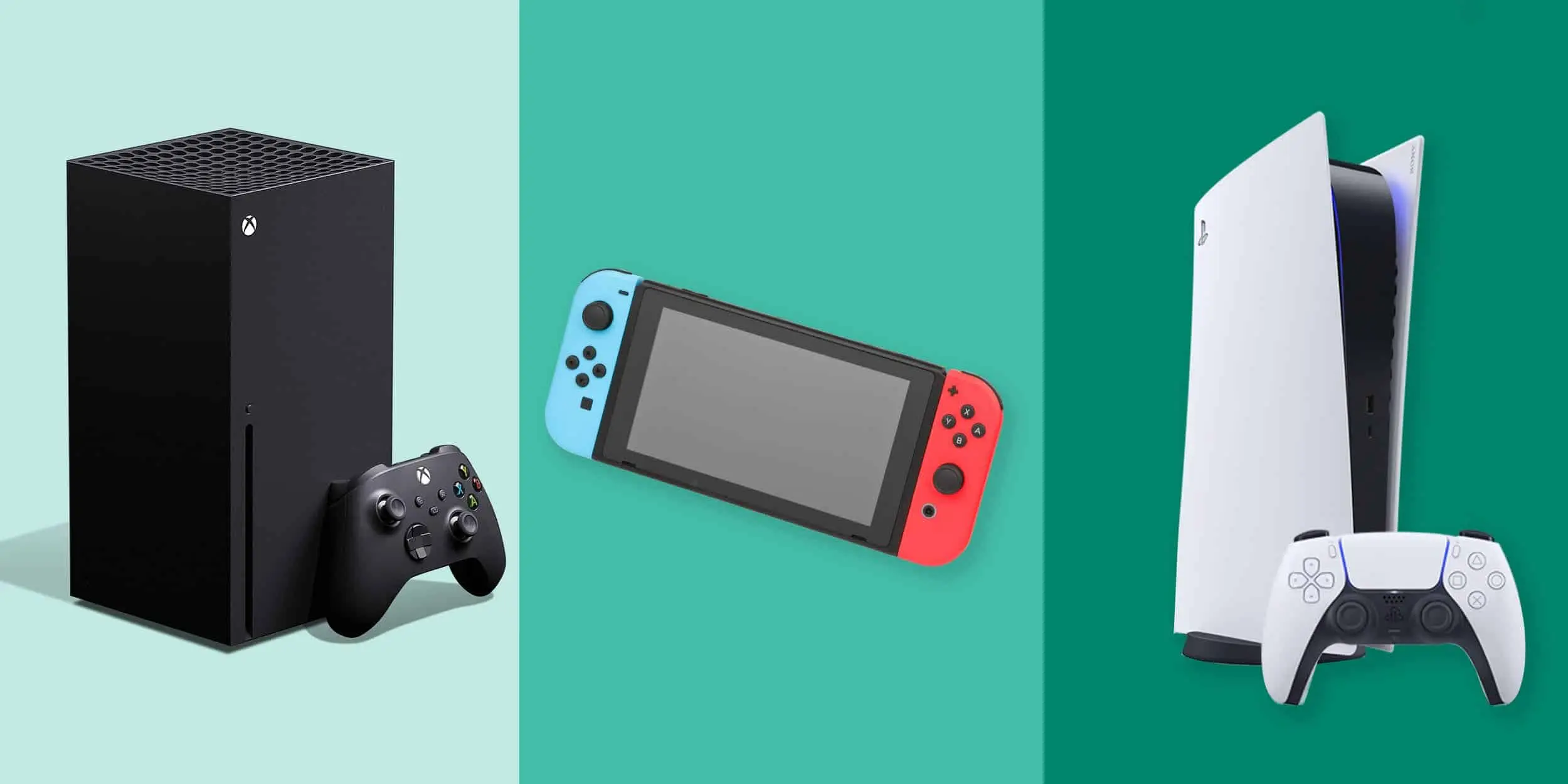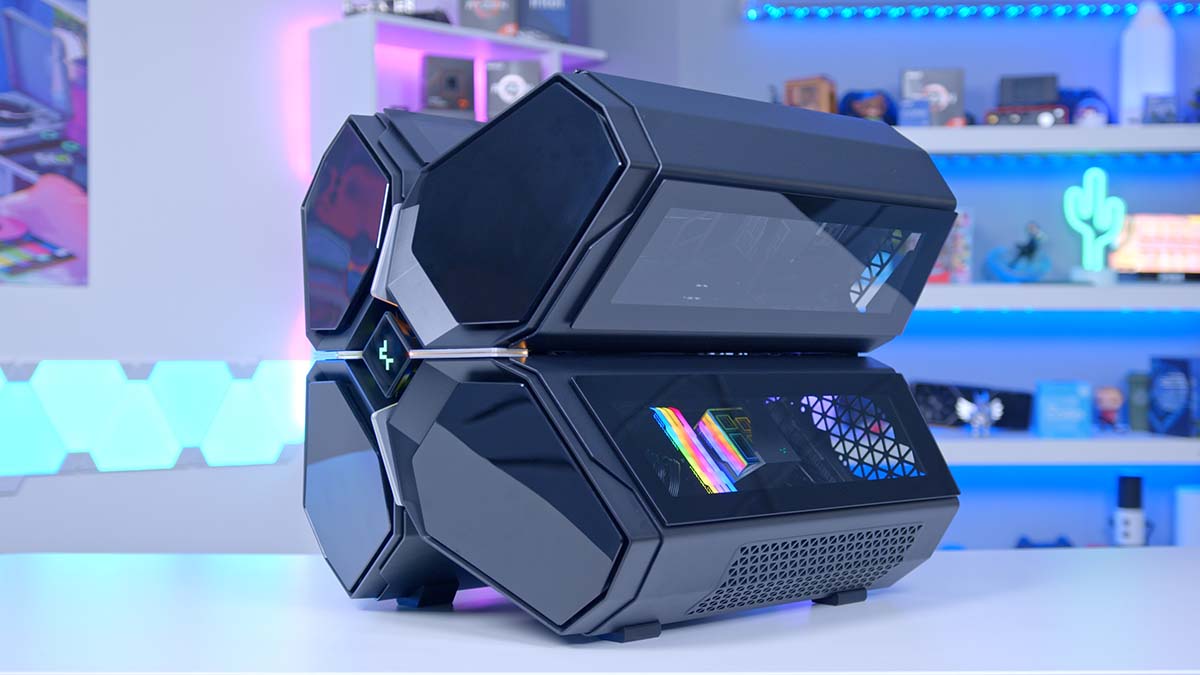Introduction
Online gaming has become an increasingly popular form of entertainment, with millions of players around the world engaging in thrilling multiplayer experiences. To fully enjoy the immersive and competitive nature of online gaming, having a high-performance PC is essential. The right PC can provide you with the processing power, graphics capabilities, and overall performance needed to have a smooth and enjoyable gaming experience.
When it comes to choosing the best PC for online gaming, there are several key factors to consider. From the processor and graphics card to the amount of RAM and storage capacity, each component plays a crucial role in determining the performance and responsiveness of your gaming rig. Additionally, factors such as the display quality, keyboard and mouse, internet connection, and operating system can significantly impact your overall gaming experience.
In this article, we will delve into each of these components and discuss their importance in creating an optimal gaming setup. Whether you are a casual gamer looking for a budget-friendly option or a hardcore gamer seeking the ultimate performance, this guide will help you make an informed decision when choosing the best PC for online gaming.
Before we delve into the specifics, it’s important to note that the best PC for online gaming will largely depend on your individual preferences and budget. What works for one person might not be the ideal choice for another. However, by understanding the key components and their impact on gaming performance, you’ll be equipped with the knowledge needed to make the right decision for your gaming needs.
Processor
The processor, commonly referred to as the CPU (Central Processing Unit), is the brain of your gaming PC. It handles all the calculations and instructions that allow your games to run smoothly. When it comes to online gaming, having a powerful processor is essential for quick responsiveness and optimal performance.
When choosing a processor for online gaming, it’s important to consider the clock speed, the number of cores, and the cache size. The clock speed determines how quickly the processor can execute instructions, while the number of cores determines how many tasks the processor can handle simultaneously. A higher cache size allows for quicker access to frequently used data, improving overall performance.
For an optimal online gaming experience, it is recommended to choose a processor with a clock speed of at least 3.0 GHz and a minimum of 4 cores. This will ensure that your PC can handle the demands of modern online games without any lag or slowdowns.
One of the most popular processors for gaming is the Intel Core i5 or i7 series. These processors offer excellent performance and are capable of handling the high processing requirements of online gaming. Alternatively, you can also consider AMD Ryzen processors, which offer competitive performance at a more affordable price point.
It’s important to note that while a powerful processor is important for gaming, it’s not the only determining factor. Other components such as the graphics card, RAM, and storage also play a significant role in overall gaming performance. Therefore, it’s crucial to strike a balance between these components to ensure a smooth and responsive gaming experience.
Overall, when choosing a processor for online gaming, look for a high clock speed, multiple cores, and a sufficient cache size. Consider your budget and the specific requirements of the games you plan to play. By choosing a processor that matches your gaming needs, you can ensure a smooth and enjoyable online gaming experience.
Graphics Card
The graphics card, also known as the GPU (Graphics Processing Unit), is crucial for delivering stunning visuals and smooth gameplay in online gaming. It is responsible for rendering and displaying the graphics of your games, including the textures, lighting, and special effects.
When it comes to choosing a graphics card for online gaming, there are two main factors to consider: performance and compatibility. Performance is determined by the GPU’s clock speed, number of cores, memory capacity, and memory bandwidth. A higher clock speed and more cores allow for faster processing and smoother gameplay, while larger memory capacity and higher memory bandwidth ensure that the graphics card can handle complex and detailed graphics in games.
Compatibility is another important aspect to consider when choosing a graphics card. Ensure that the graphics card is compatible with your motherboard’s PCIe slot and power supply. Additionally, check if the graphics card supports the APIs (Application Programming Interfaces) required by the games you plan to play, such as DirectX or Vulkan.
Two major players in the graphics card market are NVIDIA and AMD. NVIDIA’s GeForce RTX series and AMD’s Radeon RX series are popular choices among gamers. These graphics cards offer excellent performance and support advanced features like ray tracing and DLSS (Deep Learning Super Sampling), which can greatly enhance the visual quality of games.
When selecting a graphics card, consider your budget and the resolution at which you plan to play games. If you’re gaming on a 1080p monitor, a mid-range graphics card like the NVIDIA GeForce GTX 1660 Super or AMD Radeon RX 5600 XT will provide excellent performance. For those gaming at higher resolutions like 1440p or 4K, consider more powerful options like the NVIDIA GeForce RTX 3070 or AMD Radeon RX 6800 XT.
In addition to performance and compatibility, it’s essential to ensure proper cooling for your graphics card. Look for models with efficient cooling solutions, such as dual or triple fans, to prevent overheating and maintain optimal performance during long gaming sessions.
Overall, a high-performance graphics card is crucial for a visually captivating and smooth online gaming experience. Consider the performance, compatibility, and cooling options when choosing a graphics card that suits your gaming needs and budget.
RAM
RAM (Random Access Memory) is responsible for temporarily storing the data and instructions that your gaming PC needs to run games and applications smoothly. In online gaming, having an adequate amount of RAM is crucial for seamless gameplay and multitasking.
When choosing RAM for online gaming, the capacity and speed are the two main factors to consider. Capacity refers to the amount of memory available for storing data, while speed determines how quickly the RAM can read and write data.
The recommended amount of RAM for online gaming is typically 8GB or higher. With 8GB, you can run most modern games without any issues. However, for more demanding games or if you frequently multitask while gaming, it’s advisable to opt for 16GB or even 32GB of RAM.
When it comes to RAM speed, faster is generally better. Higher-speed RAM can provide a small performance boost in gaming, especially in CPU-intensive games. However, the difference in real-world gaming performance between different RAM speeds is often minimal, so it’s not necessary to prioritize RAM speed over other components.
Another consideration is the type of RAM. The most common type is DDR4, which offers faster speeds and lower power consumption compared to its predecessor, DDR3. Ensure that the RAM you choose is compatible with your motherboard’s memory slots and supports the desired capacity and speed.
It’s important to note that while having more RAM can improve gaming performance, it’s not the only factor at play. Other components, such as the processor and graphics card, also contribute to overall performance. Therefore, it’s essential to strike a balance between these components to ensure optimal gaming performance.
In summary, having sufficient RAM is crucial for smooth online gaming and multitasking. Aim for at least 8GB of RAM, but consider higher capacities if you play demanding games or frequently multitask. While RAM speed can provide a performance boost, it’s not a critical factor compared to other components. Ensure compatibility with your motherboard and prioritize a balanced configuration for the best online gaming experience.
Storage
Storage plays a vital role in online gaming, affecting both the speed at which games load and the overall performance of your gaming PC. When it comes to storage options for gaming, there are two main types to consider: hard disk drives (HDDs) and solid-state drives (SSDs).
HDDs are the traditional storage option, offering high storage capacities at a relatively lower cost. They are suitable for storing large game libraries and other files. However, HDDs are slower compared to SSDs when it comes to data transfer speeds and game loading times, which can result in longer loading screens and occasional lag in-game.
On the other hand, SSDs provide faster data transfer speeds, allowing games to load more quickly. They significantly reduce loading times, resulting in a smoother gaming experience. SSDs are available in both traditional SATA and newer, faster NVMe (Non-Volatile Memory Express) formats. NVMe SSDs deliver even faster speeds, making them the preferred choice for many gamers.
For the best gaming experience, it is recommended to have an SSD as your primary storage device, specifically for installing your operating system, frequently played games, and essential applications. This allows for faster boot times and reduces the time it takes for games to load. Additionally, you can use an HDD as secondary storage for storing larger game libraries and other files.
The ideal storage configuration for online gaming would be a combination of an SSD with at least 500GB or 1TB of capacity as the primary drive, along with an HDD with larger capacity (2TB or more) for secondary storage. This ensures fast loading times for your most-played games while providing ample storage space for your entire game collection.
In recent years, the cost of SSDs has significantly decreased, making them more accessible to gamers. However, if budget constraints are a concern, starting with a smaller SSD for your gaming needs and adding an HDD for additional storage later on can be a cost-effective solution.
Overall, having a fast and efficient storage solution is essential for online gaming. Prioritize an SSD for your primary drive to enjoy faster loading times and smoother gameplay, while also considering an HDD for additional storage capacity. Striking the right balance between speed and storage capacity will enhance your overall gaming experience.
Display
The display is a crucial component for online gaming, as it directly impacts your visual experience and gameplay immersion. When choosing a display for gaming, there are several factors to consider, including the resolution, refresh rate, response time, and panel type.
Resolution refers to the number of pixels that make up the display’s image. Higher resolutions, such as 1080p (Full HD), 1440p (QHD), or even 4K (Ultra HD), provide sharper and more detailed visuals. However, keep in mind that higher resolutions require more powerful graphics cards to run games smoothly.
Refresh rate is the number of times per second that the display refreshes the image. A higher refresh rate, such as 144Hz or 240Hz, allows for smoother motion in games, reducing motion blur and providing a more responsive feel. It is particularly important in fast-paced games where quick reactions are crucial.
Response time refers to the time it takes for a pixel to transition from one color to another. A lower response time, typically measured in milliseconds (ms), reduces motion blur and ghosting, resulting in sharper and more fluid visuals. Aim for a display with a response time of 1ms or lower for optimal gaming performance.
The panel type is an important consideration as well. The three main panel types for gaming displays are TN (Twisted Nematic), IPS (In-Plane Switching), and VA (Vertical Alignment). Each has its own strengths and weaknesses. TN panels offer fast response times, making them suitable for competitive gaming. IPS panels provide better color accuracy and wider viewing angles, making them ideal for visually immersive games. VA panels offer deep blacks and high contrast ratios, delivering vibrant visuals.
When choosing a gaming display, consider your budget, gaming preferences, and the capabilities of your graphics card. A balance between resolution, refresh rate, and response time is crucial to ensure an optimal gaming experience. Additionally, consider the size of the display and whether it fits within your gaming setup and viewing distance.
Lastly, consider other features that can enhance your gaming experience, such as G-Sync or FreeSync support. These technologies synchronize the display’s refresh rate with the graphics card, reducing screen tearing and providing smoother gameplay.
In summary, when selecting a display for online gaming, prioritize factors such as resolution, refresh rate, response time, and panel type. Aim for a balance between these features based on your gaming preferences and budget. By choosing a high-quality display, you can enhance the visual experience and fully immerse yourself in the world of online gaming.
Keyboard and Mouse
The keyboard and mouse are essential peripherals for online gaming, as they directly impact your input and control during gameplay. Having a high-quality gaming keyboard and mouse can greatly enhance your gaming experience and improve your performance in competitive online games.
When it comes to gaming keyboards, there are various features to consider. Firstly, mechanical keyboards are preferred by many gamers due to their tactile feedback and durability. They offer better keypress accuracy and responsiveness compared to membrane keyboards. Additionally, mechanical keyboards come in various switch types, such as Cherry MX or Razer switches, each providing a different typing feel and sound.
Backlit keyboards with customizable RGB lighting are also popular among gamers, allowing you to personalize the appearance of your gaming setup. Programmable macro keys can be useful for assigning complex combinations or actions to a single keystroke, providing a competitive edge in certain games.
As for gaming mice, choosing one with a high DPI (Dots Per Inch) sensitivity is important, as it determines how fast the cursor moves on the screen. A higher DPI allows for quicker and more precise movements. Many gaming mice also come with adjustable DPI settings, allowing you to customize the sensitivity to your preference.
Ergonomics is another crucial aspect to consider in gaming mice. Look for a mouse that fits comfortably in your hand, with a shape and grip style that suits your playing style. Some gaming mice also offer customizable weights to further enhance comfort and control.
Another consideration is the presence of additional buttons on the mouse. These programmable buttons can be assigned to in-game actions or macros, providing quick access to essential commands and improving efficiency during gameplay.
It’s worth noting that personal preference plays a significant role in choosing a gaming keyboard and mouse. What feels comfortable and responsive to one gamer may not be the same for another. Therefore, it’s advisable to try out different keyboards and mice to find the ones that best suit your needs and gaming style.
Lastly, ensure compatibility with your PC and consider the durability and build quality of your chosen keyboard and mouse. Investing in high-quality peripherals can provide a more enjoyable gaming experience and save you from frequent replacements down the line.
In summary, selecting a high-quality gaming keyboard and mouse is crucial for optimal control and performance in online gaming. Consider factors such as keyboard type, backlighting, programmable keys, mouse sensitivity, ergonomics, and additional buttons. Ultimately, choose the peripherals that provide the comfort, responsiveness, and customization options that suit your individual gaming needs.
Internet Connection
An uninterrupted and stable internet connection is essential for a smooth online gaming experience. A strong internet connection ensures low latency, minimal lag, and faster data transfer, allowing you to react quickly to in-game events and play competitively with other online players.
When it comes to internet connections for gaming, there are a few key factors to consider. The first is the type of internet connection available in your area. The most common types are DSL, cable, fiber-optic, and wireless (such as Wi-Fi or mobile data). Of these, fiber-optic and wired connections, such as cable, typically offer the fastest and most stable speeds.
Another important aspect is the internet service provider (ISP) you choose. Different ISPs may offer varying speeds, reliability, and customer support. Research and compare ISPs in your area to find one that can deliver the speed and quality necessary for online gaming.
The internet speed, commonly measured in Mbps (megabits per second), is a critical factor for online gaming. Higher speeds are generally better, as they provide faster data transfer between your computer and the game servers. However, the specific speed required may vary depending on the games you play. Most online games have recommended minimum speeds, usually around 3-5 Mbps for a smooth experience.
Latency, often referred to as ping, is another crucial consideration. Latency measures the time it takes for data to travel from your computer to the game server and back. Lower latency results in less delay and a more responsive experience. Ideally, aiming for a latency below 50 milliseconds (ms) is desirable for online gaming.
To optimize your internet connection for gaming, consider the following tips:
- Use a wired connection whenever possible, as wired connections generally offer more stability and lower latency compared to wireless connections.
- Ensure your router and modem are up to date and capable of handling high-speed connections.
- Reduce network congestion by limiting the number of devices using your internet connection simultaneously.
- Close any unnecessary background applications or downloads that may consume bandwidth.
- If you’re experiencing connection issues, try resetting your router or contacting your ISP for assistance.
In summary, a stable and fast internet connection is essential for an optimal online gaming experience. Choose a reliable ISP, consider the type of internet connection available to you, and aim for higher speeds and lower latency. By ensuring a strong internet connection, you can enjoy seamless gameplay, minimal lag, and enhanced online competitiveness.
Operating System
The operating system (OS) is the software that manages and controls the hardware and software resources of your computer. When it comes to choosing an operating system for gaming, there are a few key considerations to keep in mind.
The most common operating systems for gaming are Microsoft Windows, macOS, and Linux. Windows is the most widely used OS for gaming, with the largest selection of compatible games and gaming-related software. Many game developers prioritize Windows compatibility, making it the go-to choice for most gamers.
macOS, the operating system used on Apple Mac computers, may have a smaller selection of games compared to Windows but still offers a range of popular titles and gaming platforms. Mac users can also run Windows through Boot Camp or virtualization software, allowing access to a wider range of games.
Linux is a popular choice among more technically inclined gamers. While the selection of games for Linux is smaller compared to Windows, many open-source and indie games support Linux, making it a viable option for those seeking a lightweight and customizable gaming environment.
When choosing an operating system for gaming, consider factors such as compatibility, game availability, performance, and user experience. It’s crucial to ensure that the games you want to play are compatible with the chosen operating system. Additionally, check the system requirements of the games to ensure that your hardware meets the necessary specifications for optimal performance.
Updates and support are also important considerations. Look for an operating system that provides regular updates and security patches to keep your gaming rig protected and up to date. Furthermore, consider the software ecosystem surrounding the operating system, such as game clients, community support, and driver compatibility for gaming peripherals.
Ultimately, the choice of operating system for gaming comes down to personal preference, hardware compatibility, and the games you want to play. Consider your specific needs, the available game library, and the level of technical expertise required for each operating system.
It’s worth noting that dual-booting or using virtualization software can allow you to have multiple operating systems on your computer, providing flexibility and access to a wider range of games and software.
In summary, choosing the right operating system for gaming involves assessing compatibility, game availability, performance, support, and user experience. Consider factors such as your hardware, game library, and personal preferences to make an informed decision. By selecting an appropriate operating system, you can ensure a smooth and enjoyable gaming experience on your PC.
Conclusion
When it comes to online gaming, having the right PC setup is crucial for an immersive and enjoyable experience. Each component plays a vital role in determining the performance and responsiveness of your gaming rig. From the processor and graphics card to the RAM, storage, display, keyboard, mouse, internet connection, and operating system, every aspect can impact your gaming experience.
When choosing a PC for online gaming, consider your budget, gaming preferences, and the specific requirements of the games you plan to play. Striking a balance between performance and cost is key. Aim for a powerful processor with multiple cores, a high-performance graphics card, adequate RAM capacity, and fast storage options. Opt for a high-resolution and high-refresh-rate display, alongside a comfortable and responsive gaming keyboard and mouse.
Additionally, ensure a stable and fast internet connection to minimize lag and latency during online gameplay. Choose an operating system that best suits your gaming needs and provides compatibility with the games you want to play.
Remember, there is no one-size-fits-all solution when it comes to the best PC for online gaming. It ultimately depends on your individual preferences, budget, and gaming requirements. Do thorough research, read reviews, and seek expert advice when necessary to make informed decisions.
By carefully considering each component and selecting the appropriate hardware and software, you can create a powerful and optimized gaming setup that enhances your online gaming experience. Whether you’re a casual gamer or a competitive player, investing in the right PC for online gaming will undoubtedly elevate your gameplay and enjoyment.

























